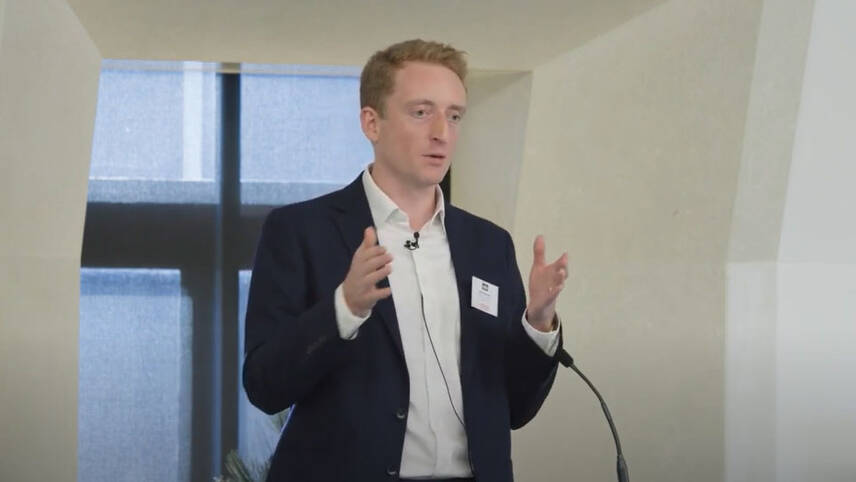Register for free and continue reading
Join our growing army of changemakers and get unlimited access to our premium content
Speaking at edie’s SPARK! Workshops event in London on 15 November, which convened dozens of carbon and energy leaders, Mike Hemsley from the ETC delivered a keynote address exploring the potential obstacles in the transition towards renewable energy, while expressing confidence in overcoming these challenges and emphasising the feasibility of a rapid energy transition.
Hemsley kicked off by reflecting on the global shift to renewables and asking: “Is the global energy transition actually happening?”
He emphasised that the major carbon emitters including the US, the EU, China and India, are working towards decarbonising their electricity and power grids as well as reducing emissions from the transport sector with rapid deployment of electric vehicles (EVs).
Moreover, the ETC recently published a report highlighting that key technologies including renewables, batteries, EVs and heat pumps are advancing faster than anticipated, displacing fossil fuel demand in various regions.
Despite his positive outlook on clean energy, Hemsley acknowledged that there are concerns and misconceptions surrounding net-zero and energy security.
He emphasised that the challenges related to the complexity of supply chains, the need to plan for system changes due to increased reliance on singular fuel sources and geopolitical dependencies loom over the future of a decarbonised global power sector.
“Even though wind and solar are relatively evenly dispersed around the world, the actual material inputs for the technologies used to generate that power are not,” said Hemsley.
He highlighted that the UK relies on Indonesia for 50% of its nickel used in batteries, while China dominates the supply chain with 50% of the graphite and 70% of the rare earth materials crucial for technologies such as wind turbines.
“Those reasons are why countries are looking to domesticate their clean energy supply chains overall,” Hemsley concluded.
He urged high-level geopolitical strategies to tackle supply chain challenges and advocated for government policies that derisk investment; therefore, accelerating public investment into the sector to build resilient supply chains.
Fossil fuel misconceptions
Hemsley also analysed the ongoing energy crisis driven by geopolitical events, particularly the spike in gas prices following Russia’s invasion of Ukraine.
Hemsley said: “A lot of people are using last year’s energy crisis to suggest that net-zero is the cause of the rising energy costs and that fossil fuels might be the fix.
“But if we just look at what actually happened in the energy sector, when Russia invaded Ukraine, gas prices in Europe went up about five times in a matter of weeks because Russia was 40% of Europe’s gas supply and Europe had to replace all of that within a very short period of time.”
He addressed the misconception that increased fossil fuel investment could have avoided the energy crisis.
“New fossil fuel investment takes about five years to come to fruition, so you would need to be planning this for about five years in advance,” he said.
Hemsley highlighted the recent boom in natural gas exports, particularly from the US to Europe. However, he questioned the feasibility of predicting the need for increased investment in fossil fuels five years ago and emphasised that fossil fuels are sold at international market prices; therefore, unless a country can entirely replace its imports, it will still be subject to international market prices.
He noted that given the falling domestic demand in Europe, there wasn’t much talk about investing significantly in new domestic supplies.
“Overall, I don’t think that investment in fossil fuels would have helped. What has actually helped though is increased clean energy technology,” Hemsley added.



Please login or Register to leave a comment.